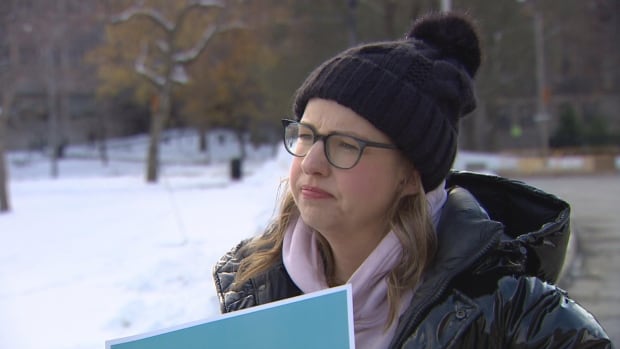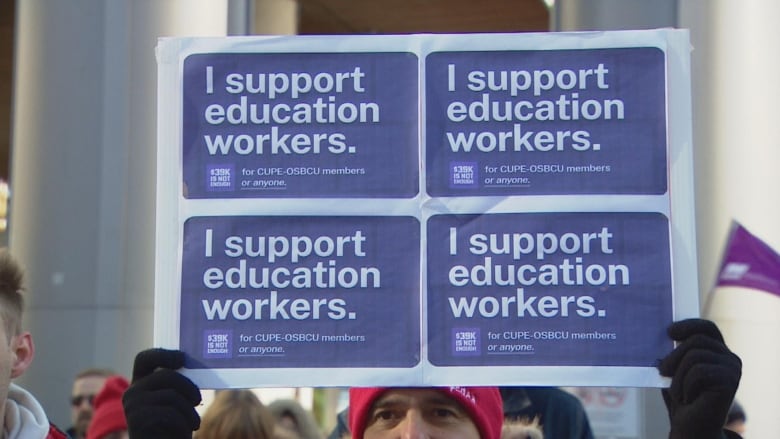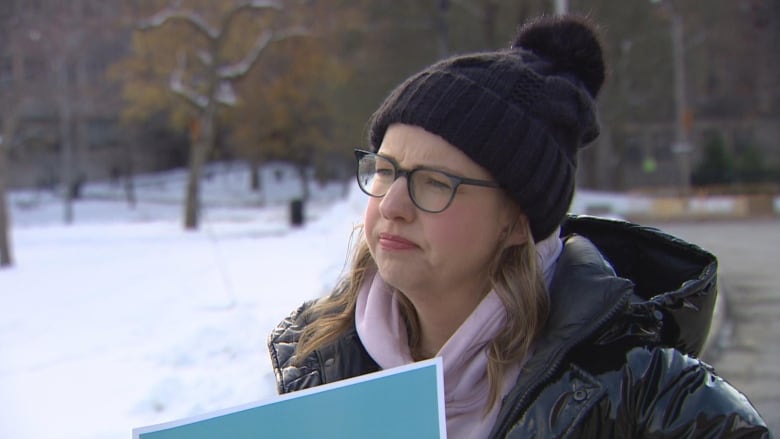
Parents across Ontario are still waiting to find out whether or not they’ll be sending their children to school Monday morning.
The latest round of talks between the province and the Canadian Union of Public Employees (CUPE) is set to conclude by 5 p.m. Sunday.
If they don’t reach a deal by that deadline, about 55,000 education workers will walk off the job the following day, forcing parents like Jessica Lyons to arrange backup child-care.
“I have a plan for Monday. I have a plan for Tuesday. But getting beyond this, I mean, it just becomes more and more stressful to think about,” she told CBC Toronto.

Last Wednesday, CUPE issued a five-day strike notice after talks with the province broke down once again. That notice came less than two weeks after the union organized a walk-out to protest against the now rescinded provincial legislation that would have imposed a contract on them and make it illegal for the workers to strike.
Since then, CUPE says both sides have agreed to a $1-per-hour raise each year or about 3.5 per cent annually, but the union says it is still fighting for higher staffing levels for educational assistants, librarians, custodians, secretaries and early childhood educators.
“If there’s money to extend credits for gas pumps, to build highways, then there’s money to put into our schools to make sure students have the support they need,” Fred Hahn, president of CUPE Ontario, told CBC Toronto on Saturday, while participating in one of a dozen solidarity rallies being held across the province.
“We know that it is more than possible to have an agreement this weekend.”

Dozens turned out for one of the rallies at Yonge-Dundas Square Saturday morning, where the crowd shouted: “What do we want? A Good deal. When do we want it? Now.”
Miriam Zemell, an educational assistant and school secretary, said she’s watched over her 24-year career as student services have declined.
“We’re in these jobs because we really care, we really care about our students,” she said. “I work with a lot of students who face a lot of adversity in their lives. I’m here because I really believe in what we’re doing in public education but we need to receive adequate supports.”
CUPE wants more staffing for services
“We need to see money put into services that students and families require, that they need,” Laura Walton, president of CUPE told CBC’s Metro Morning on Friday.
But the ongoing back-and-forth between CUPE and the province has parents, like Bronwen Alsop of the Ontario Families Coalition, feeling frustrated.
“I want school to be essential,” she told Radio-Canada. “It is not something that you can … turn on and off and close just when it’s politically best for your union or for your political gain. It’s wrong.”

In light of school closures during the pandemic and problems with remote learning, Alsop said she thinks students should remain in classrooms while the union and the province negotiate.
In a statement on Friday, the Ontario Ministry of Education expressed disappointment that students may be forced out of the classroom so soon after returning to the bargaining table.
Additionally, the province agreed to provide free child care to elementary school-aged children of health-care and licensed child-care workers, if a strike does occur.
For most other students in the province, school boards are planning to transition to live virtual learning, in some cases as early as Monday.
But in many cases remote learning isn’t a suitable substitution for in-person learning,” Lyons said.
She wants to see more permanent solutions.
“Public education needs strengthening, it needs more funding,” Lyons said.
“We’re on the same side as education workers because that’s what they see too.”